Centrifuges
Centrifuge is essential equipment throughout the laboratory. This equipment generates rotation movements, with the aim of separating the components that constitute a solution. This instrument applies a sustained centrifugal force to force the matter out of the rotation center. The basic components of a centrifuge are rotor, engine, vacuum chamber, and speed, time, and temperature control.
Centrifugation is a technique governed by Stokes' law, which proposes that particles sediment more easily the larger they are in their diameter and specific weight, and the lower their viscosity. Centrifugation is used to isolate or concentrate suspended particles in a liquid by exploiting the different speed of movement according to their shape, size or weight when subjected to a centrifugal force. Centrifugal force is the force exerted on a body as it rotates around an axis.
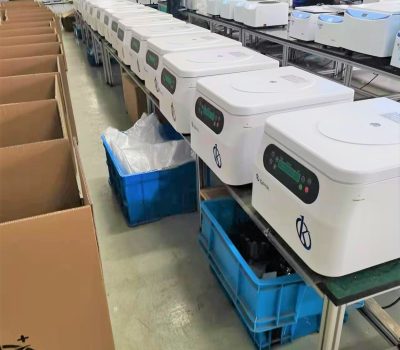
Types of Centrifuges a Laboratory may need
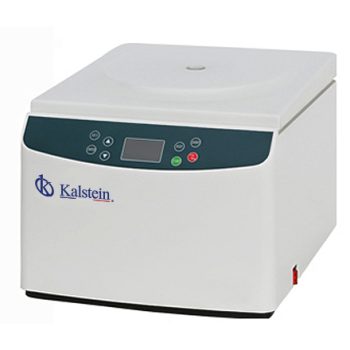
Non-refrigerate Centrifuges
- Microcomputer control, electronic lock and AC variable conversion motor that offers high torque, stable operation, low noise level and high speed accuracy.
- Touch panel, programmable operation, operation data can be configured according to demands and stored automatically.
- LED or LCD display. Easy to use interface, simple and convenient operations.
- Speed and RCF's real-time conversation is convenient for the operation.
- It has self-locking device, cap safety device, overspeed safety device, overtemperature safety device.
Refrigerated Centrifuges
- The maximum speed is 21000 rpm and the maximum RCF is 50400 g.
- It has microcomputer control, electronic lock and AC variable conversion motor that delivers high torque.
- Imported compressor unit with non-CFC refrigerant. It lives up to environmental standards.
- The machine is programmable. The operation data can be automatically stored.
- LCD or LED display and touch panel make operation easier.
- Speed and RCF's real-time conversation is convenient for the operation.
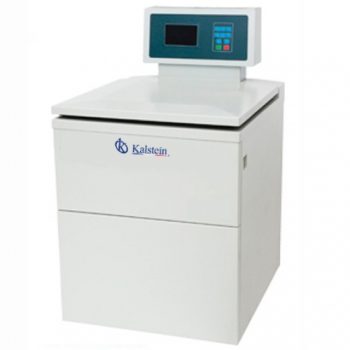
At Kalstein you can find the ideal Centrifuges for your Laboratory
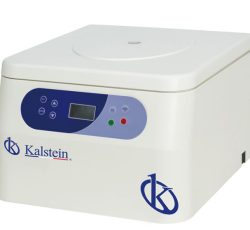
PRP Centrifuge YR469
It's got a self-locking device, safety cover device, excess safety device...
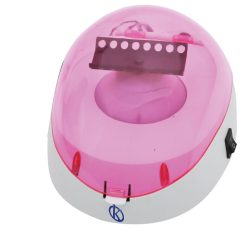
Mini Centrifuge YR144
When the centrifuge is in the pre-cooled state, the centrifuge cover should be closed. Once...
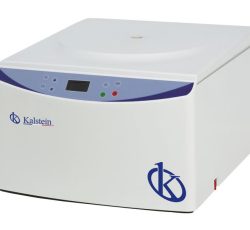
Cytocentrifuge YR142-4
It has self-locking device, safety cover device, overspeed safety device...

Mini Centrifuge YR143
The centrifuge instrument is specialized in the manufacture of centrifuges with a long track ...
Our Top Selling Centrifuges
Microcomputer control, brushless DC motor, stable operation, low noise level. LED display, easy-to-use interface, simple and convenient operations. Speed and RCF's real-time conversation is convenient for the operation.
Technical Presentation
- Microcomputer control, brushless DC motor, stable operation, low noise level.
- LED display, easy-to-use interface, simple and convenient operations.
- Speed and RCF's real-time conversation is convenient for the operation.
- It has self-locking device, overspeed safety device, overtemperature safety device.
- Sealed Ring of Silastic comfort according to GMP. Certified by U.S. Food and Drug Administration.
| Model | YR134-2 |
| Maximum speed | 12,000r/min |
| RCF Max | 13,500 xg |
| Maximum capacity | 24 Pieces of Capillaries |
| Speed Accuracy | ±30r/min |
| Time Settings | 1 min to 99 min |
| Noise | <65dB(A) |
| Power supply | 110V/60Hz 220V/50Hz |
| Dimension (W×D×H) | 230 x 310 x 240 (mm) |
| Packing Size (L x W x H) | 290 x 400 x 330 (mm) |
| Net weight | 9kg |
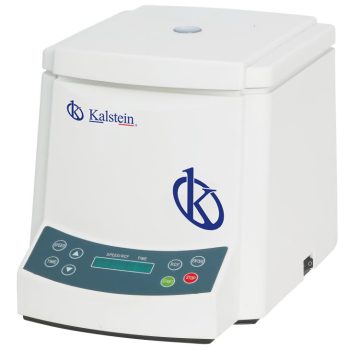
Analysis of the best Centrifuges for your Laboratory
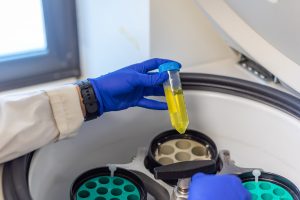
What is a centrifuge?
Centrifugation is a mechanism for separating mixtures (in particular, those made up of solids and liquids of different densities) through their exposure to a rotating force of...
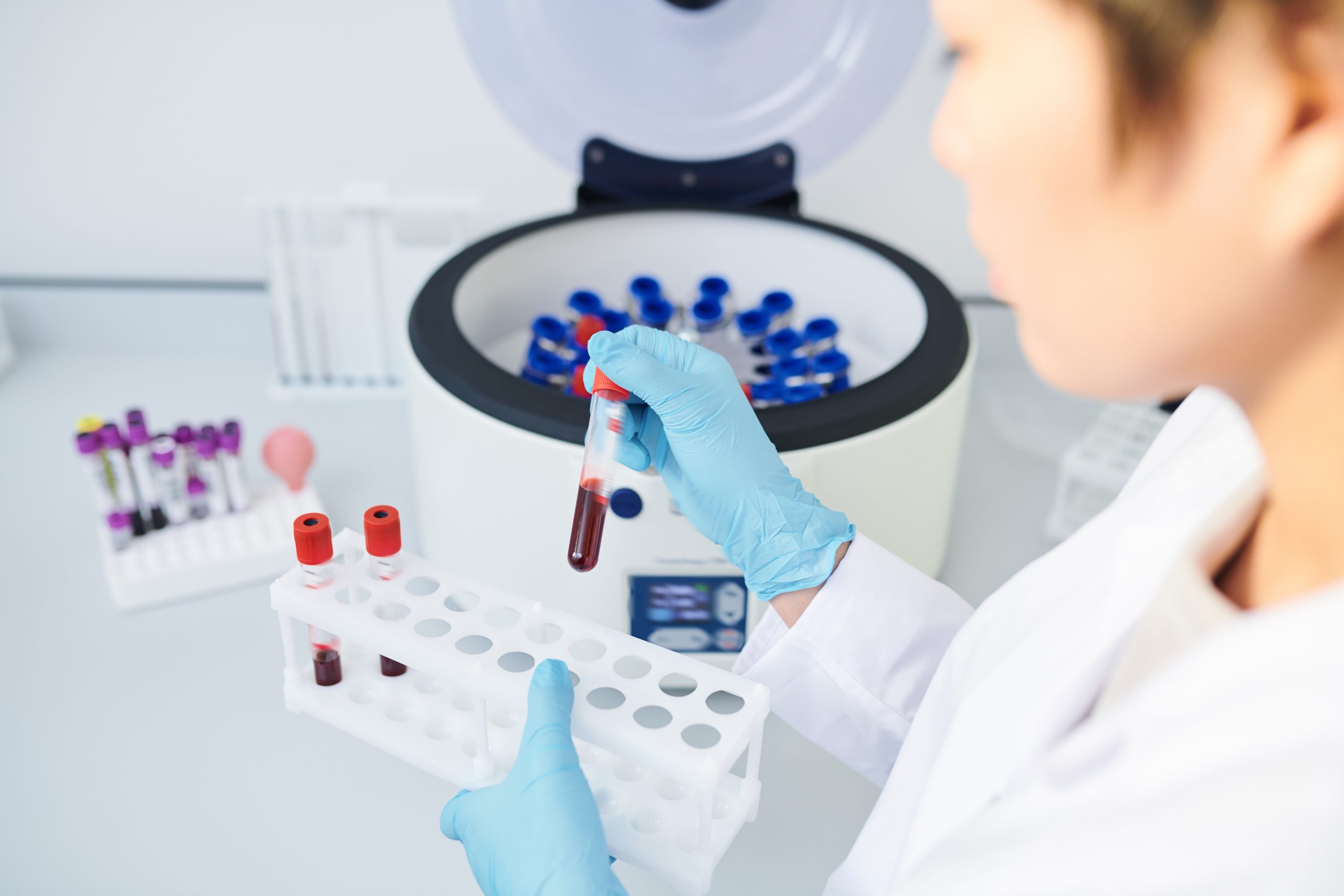
What is a hematocrit centrifuge?
A centrifuge for hematocrit is specialized equipment that allows to obtain the compact ratio of the...
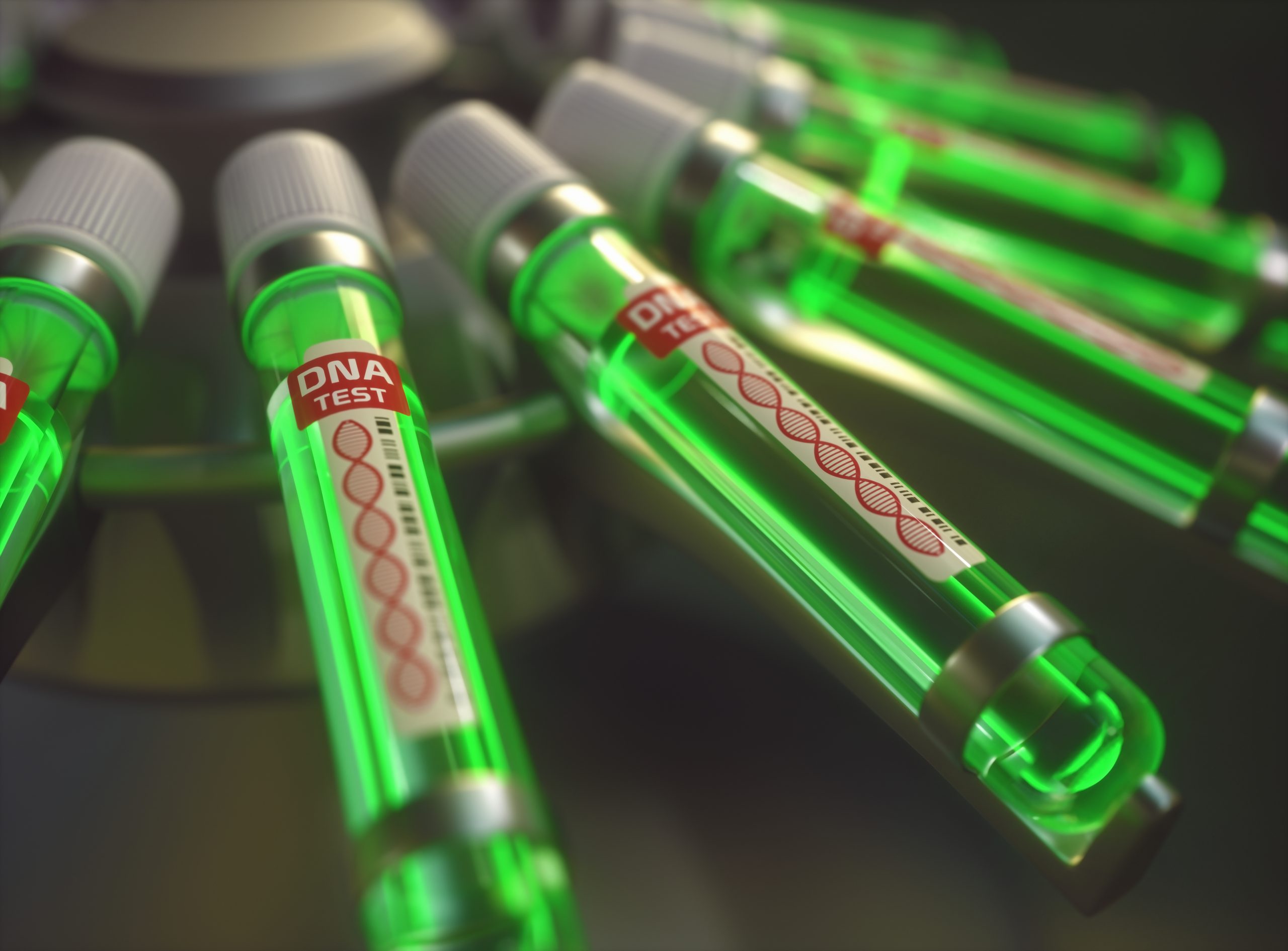
What is a microcentrifuge?
A microcentrifuge is a special type of centrifuge that performs the function of centrifuging samples that are in small capillary tubes, in order to...
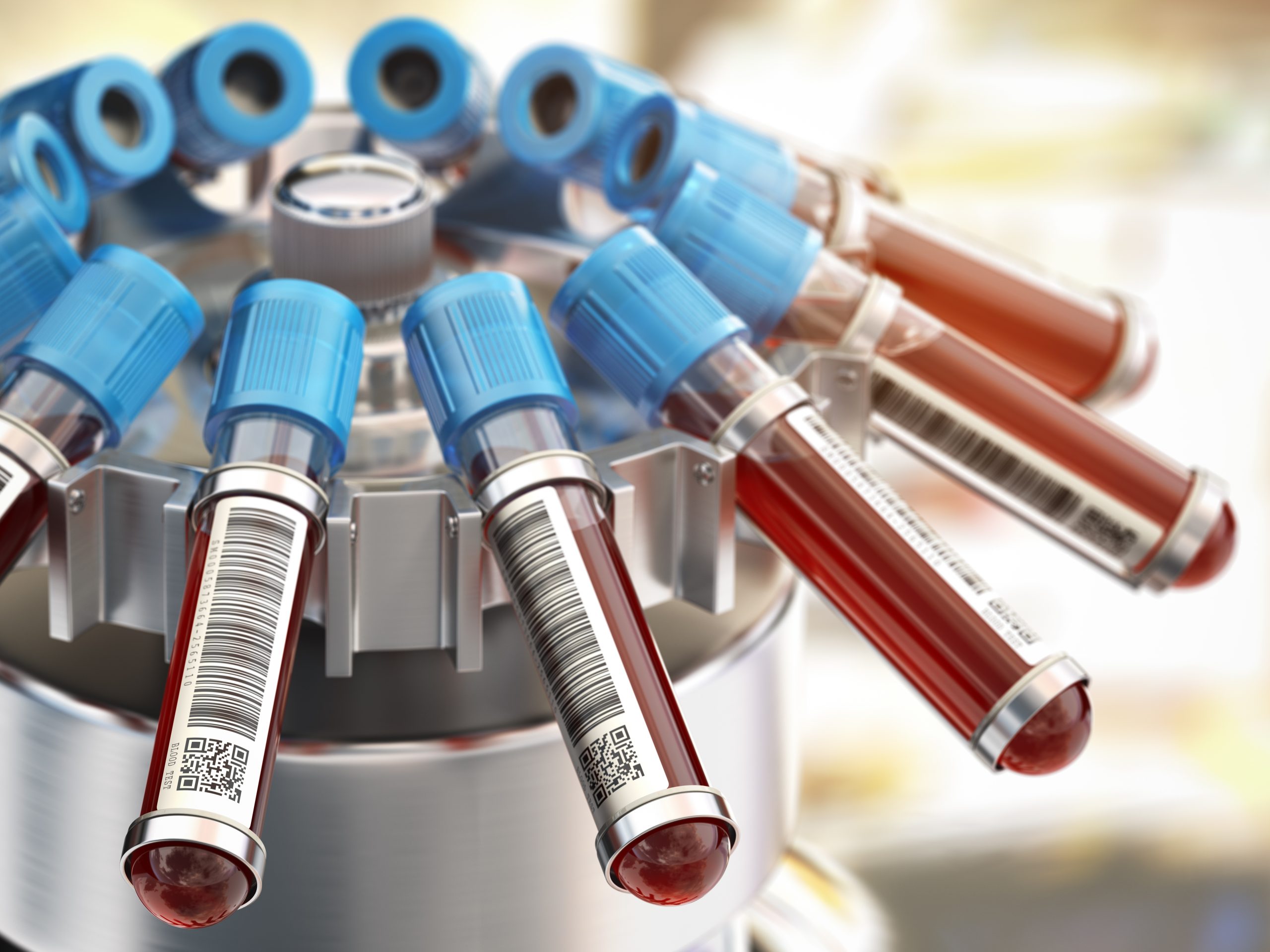
Centrifugation: RPM vs. G Force
Centrifugation is one of the most important and widely applied research techniques in biochemistry, cell...
Catalog of Centrifuges models on offer
-
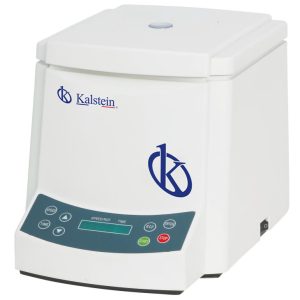
Microhematocrit centrifuge YR134-2
-
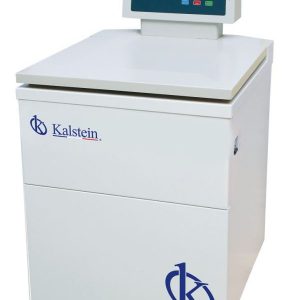
Low speed centrifuge YR124-1
Select options This product has multiple variants. The options may be chosen on the product page -
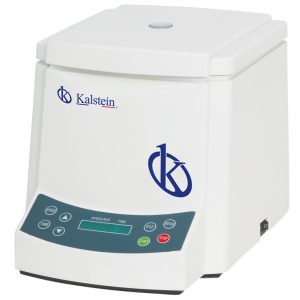
Speed table centrifuge YR142-1
Select options This product has multiple variants. The options may be chosen on the product page -
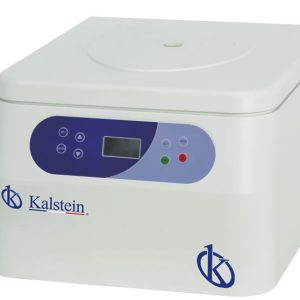
Speed table centrifuge YR0139
Select options This product has multiple variants. The options may be chosen on the product page -
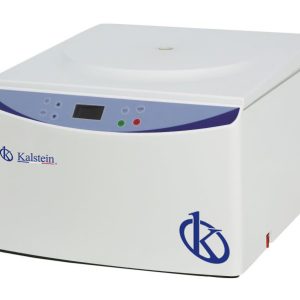
Cytocentrifuge YR142-4.
Read more -
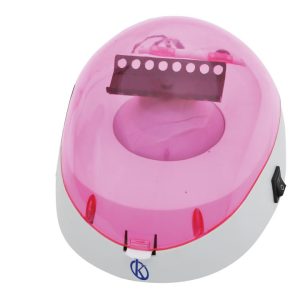
Mini centrifuge YR144.
-
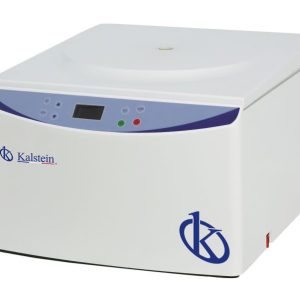
Speed table centrifuge YR131
Select options This product has multiple variants. The options may be chosen on the product page -
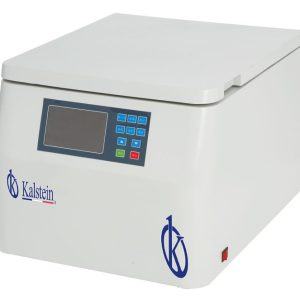
High-speed table centrifuge YR137-2
Select options This product has multiple variants. The options may be chosen on the product page
Guides to become a Centrifuge expert
The Centrifuge: an Essential Element
A centrifuge is an apparatus that applies a sustained centrifugal force (that is, a force produced by rotation) to impel matter out of the center of rotation. This principle is used to separate...
How to handle a refrigerated Centrifuge?
Laboratory centrifuges are equipment used to settle the components in a homogeneous solution in their...
What is the function of the refrigerated Centrifuges?
Refrigerated laboratory centrifuges are equipment used to achieve the sedimentation of the components in...
How to act in case of the rupture of tubes inside a Centrifuges?
The centrifuges for laboratory are equipment used to make the sedimentation of the components in a homogeneous solution in their different densities. For this they have a special design that subjects the solutions to the centrifugal rotation...
Videos of Operating Centrifuges
In this section you can find, our Centrifuges in operation, packaged, receiving service, etc...
Centrifuges in operation
Some centrifuges can be used in a wide variety of applications, while others serve only very specific purposes. Different types of centrifuges fit different types of centrifugation: preparatory centrifugation, which aims to isolate specific particles, and analytical centrifugation, with which physical properties such as sedimentation rate or molecular weight can be estimated. Centrifuges can thus be divided into two broad groups:
- Analytical: molecular data can be obtained: molecular mass, sedimentation coefficient, etc. They are very expensive and rare.
- Preparations: These isolate and purify the samples. There are four types: Table-top, High-capacity, High-speed, and Ultra-centrifugal.

Our customers' FAQ on Centrifuges
How do you know the prices of Centrifuges?
To know the price of Centrifuges we invite you to send us an email with your request through the contact form.
What are the delivery times of Centrifuges?
The delivery time of your Kalstein product it will depend on the following:
- If the equipment of your interest is in stock or if otherwise it must be manufactured.
- The type of freight you have chosen may be; air or sea.
- Equipment in stock:
- Delivery Time ( Aerial ): 15 -30 days .
- Delivery Time ( Maritime ): 45-60 days .
- Equipment not in stock:
- Delivery Time ( Aerial ): 30 -60 days .
- Delivery Time ( Maritime ): 60-90 days .
How to make a purchase of Centrifuges?
It may perform your purchase through :
- By email: s[email protected]
- By telephone: +33 (0) 1 78 95 87 02
- Trade electronic : Through from Kalstein's official website in your country .
How does the warranty work?
At Kalstein we make it easy for our customers to provide induction and technical support through new online methods. You can visit our induction, technical assistance and guidance videos provided by a Kalstein team through our induction channel Youtube (Kalstein English) HERE
Can I request an online quote?
Of course, you can request a quote for the Kalstein team of your interest, directly from our website official. U Once you've identified your preferred model, do click k HERE
